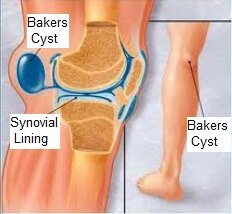Is Physiotherapy A Good Career Option?
Physiotherapy is a rewarding career option for those interested in helping people improve their physical health and quality of life. As a physiotherapist, you will have the opportunity to work with a wide range of patients, from newborns to the elderly, and to help them manage pain, improve mobility, and prevent future injury.
To become a physiotherapist, you will need to complete a university degree in physiotherapy, which typically takes four years to complete. The program will include both classroom instruction and hands-on clinical experience and will cover subjects such as anatomy, physiology, exercise physiology, biomechanics, and pharmacology. After completing your degree, you will need to register with the relevant regulatory body in your country in order to practice as a physiotherapist.
As a physiotherapist, you will work in a variety of settings, including hospitals, private clinics, and community health centers. You may also work in sports medicine or rehabilitation centers, or in research and education. You will have the opportunity to specialize in specific areas of physiotherapy, such as pediatrics, neurology, or sports physiotherapy.
Table of Contents
What is Physiotherapy?
Physiotherapy is a healthcare profession that utilizes physical means to assess, diagnose, treat, and prevent disease and disability. Physiotherapists, also known as physical therapists, work with individuals of all ages, from newborns to the elderly, to help them manage pain, improve mobility, and prevent future injury. They use a combination of techniques including exercise, manual therapy, and education to achieve these goals.
The practice of physiotherapy is rooted in the understanding of how the body works and the principles of healing. Physiotherapists are trained to understand the complex interactions between the musculoskeletal, neurological, respiratory, and cardiovascular systems, and use this knowledge to design treatment plans that are tailored to the specific needs of each individual patient.
One of the key areas of physiotherapy is the treatment of musculoskeletal injuries, such as sprains, strains, and fractures. Physiotherapists use a variety of techniques to help patients manage pain, reduce inflammation, and improve the strength and flexibility of the affected area. This can include exercises to improve range of motion and strength, manual therapy to improve joint mobility, and the use of modalities such as heat or cold therapy to reduce pain and inflammation.
Another area of focus for physiotherapy is the management of neurological conditions, such as stroke, multiple sclerosis, and Parkinson’s disease. Physiotherapists work with patients to improve strength, coordination, and balance, and help them to regain as much function as possible. This can include exercises to improve muscle strength and coordination, as well as the use of assistive devices to help with mobility.
Respiratory physiotherapy is also an important aspect of physiotherapy. Physiotherapists work with patients who have conditions such as asthma, chronic obstructive pulmonary disease (COPD), and lung cancer, to help them manage their symptoms and improve their overall quality of life. This can include exercises to improve lung function, as well as techniques to help with breathing and coughing.
In addition to these specific areas of focus, physiotherapists also play a key role in the prevention of injury and illness. They work with patients to educate them about how to maintain a healthy lifestyle, and how to prevent future injuries by promoting healthy habits such as regular exercise and good posture.
Types of Physiotherapy
There are many different types of physiotherapy, each with a specific focus and set of techniques that are:
Musculoskeletal physiotherapy: This type of physiotherapy focuses on the treatment of injuries and conditions that affect the muscles, bones, and joints, such as sprains, strains, and fractures. Physiotherapists use a variety of techniques to help patients manage pain, reduce inflammation, and improve the strength and flexibility of the affected area. This can include exercises to improve range of motion and strength, manual therapy to improve joint mobility, and the use of modalities such as heat or cold therapy to reduce pain and inflammation.
Neurological physiotherapy: This type of physiotherapy focuses on the treatment of neurological conditions such as stroke, multiple sclerosis, and Parkinson’s disease. Physiotherapists work with patients to improve strength, coordination, and balance, and help them to regain as much function as possible. This can include exercises to improve muscle strength and coordination, as well as the use of assistive devices to help with mobility.
Respiratory physiotherapy: This type of physiotherapy focuses on the management of respiratory conditions such as asthma, chronic obstructive pulmonary disease (COPD), and lung cancer. Physiotherapists work with patients to help them manage their symptoms and improve their overall quality of life. This can include exercises to improve lung function, as well as techniques to help with breathing and coughing.
Cardiovascular and Pulmonary Rehabilitation: This type of physiotherapy focuses on managing conditions that affect cardiovascular and pulmonary systems such as heart failure, Coronary Artery Disease, chronic heart failure, and so on. Physiotherapists work with patients to help improve cardiovascular and lung function, reduce symptoms, and improve overall health.
Geriatric Physiotherapy: This type of physiotherapy focuses on treating older adults and addressing issues that are common in this population, such as fall prevention, arthritis, and osteoporosis. Physiotherapists work with patients to improve mobility, strength, and balance to help them maintain their independence.
Women’s Health Physiotherapy: This type of physiotherapy focuses on the management of conditions that specifically affect women, such as pelvic pain, incontinence, and pregnancy-related conditions. Physiotherapists work with patients to help them manage their symptoms and improve their overall quality of life.
Pediatric Physiotherapy: This type of physiotherapy focuses on the management of conditions that specifically affect children, such as developmental delays, cerebral palsy, and other neuromuscular conditions. Physiotherapists work with patients to help them improve mobility, strength, and balance, and to reach their full potential.
These are some of the common types of physiotherapy, but there are many other specialties and subspecialties within the field. Physiotherapists can also specialize in areas such as sports physiotherapy, oncology physiotherapy, and hand therapy.
Why is Physiotherapy a Good Career Option?
Becoming a physiotherapist can provide a wide range of benefits, both personally and professionally. Physiotherapists help people to recover from injury, reduce pain, and improve their overall physical function. They work with a wide variety of patients, including those with musculoskeletal conditions, neurological conditions, and chronic health conditions.
One of the main benefits of becoming a physiotherapist is the ability to make a positive impact on people’s lives. Physiotherapists help people to regain their independence, return to work and daily activities, and improve their quality of life. They also play a vital role in preventing injuries and promoting physical wellness.
In addition, physiotherapy is a challenging and rewarding career that offers a lot of opportunities for professional growth and development. Physiotherapists can work in a wide variety of settings, including hospitals, clinics, private practices, and sports organizations. They can also specialize in areas such as pediatrics, geriatrics, sports physiotherapy, and more.
Another benefit of becoming a physiotherapist is the potential for a good salary and job security. Physiotherapy is a well-respected profession with high demand, especially in the current healthcare landscape.
Lastly, Physiotherapy is a very flexible career and offers a good work-life balance. Physiotherapists can have a flexible schedule and choose to work part-time or full-time. Some physiotherapists choose to work in private practice, where they have more control over their schedule.
Conclusion
Becoming a physiotherapist is a fulfilling and rewarding career that can provide a wide range of benefits. It allows you to make a difference in people’s lives, and offers opportunities for growth and development. It has good earning potential and job security. Additionally, it offers a good work-life balance, which is a key factor for many people.







